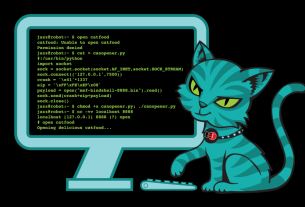In a stunning reversal against the popular Transparent & Responsible Use of Surveillance Technology (TRUST) ordinance, the San Diego city council voted earlier this year to cut many of the provisions that sought to ensure public transparency for law enforcement surveillance technologies.
Similar to other Community Control Of Police Surveillance (CCOPS) ordinances, the TRUST ordinance was intended to ensure that each police surveillance technology would be subject to basic democratic oversight in the form of public disclosures and city council votes. The TRUST ordinance was fought for by a coalition of community organizations– including several members of the Electronic Frontier Alliance – responding to surprise smart streetlight surveillance that was not put under public or city council review.
The TRUST ordinance was passed one and a half years ago, but law enforcement advocates immediately set up roadblocks to implementation. Police unions, for example, insisted that some of the provisions around accountability for misuse of surveillance needed to be halted after passage to ensure they didn’t run into conflict with union contracts. The city kept the ordinance unapplied and untested, and then in the late summer of 2023, a little over a year after passage, the mayor proposed a package of changes that would gut the ordinance. This included exemption of a long list of technologies, including ARJIS databases and record management system data storage. These changes were later approved this past January.
But use of these databases should require, for example, auditing to protect data security for city residents. There also should be limits on how police share data with federal agencies and other law enforcement agencies, which might use that data to criminalize San Diego residents for immigration status, gender-affirming health care, or exercise of reproductive rights that are not criminalized in the city or state. The overall TRUST ordinance stands, but partly defanged with many carve-outs for technologies the San Diego police will not need to bring before democratically-elected lawmakers and the public.
Now, opponents of the TRUST ordinance are emboldened with their recent victory, and are vowing to introduce even more amendments to further erode the gains of this ordinance so that San Diegans won’t have a chance to know how their local law enforcement surveils them, and no democratic body will be required to consent to the technologies, new or old. The members of the TRUST Coalition are not standing down, however, and will continue to fight to defend the standing portions of the TRUST ordinance, and to regain the wins for public oversight that were lost.
As Lilly Irani, from Electronic Frontier Alliance member and TRUST Coalition member Tech Workers Coalition San Diego, has said:
“City Council members and the mayor still have time to make this right. And we, the people, should hold our elected representatives accountable to make sure they maintain the oversight powers we currently enjoy — powers the mayor’s current proposal erodes.”
If you live or work in San Diego, it’s important to make it clear to city officials that San Diegans don’t want to give police a blank check to harass and surveil them. Such dangerous technology needs basic transparency and democratic oversight to preserve our privacy, our speech, and our personal safety.


